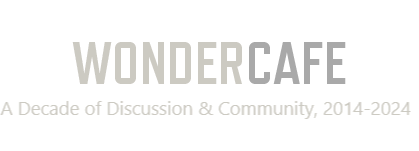Ryan Hauck
Well-Known Member
Greetings one and all!
Its been some time since I posted in these forums, and life has been nothing short of a wonderful, miraculous journey.
I come here today to inquire how willing the members here are to embracing new idea's about Christianity, Christ, Jesus, God, Heaven, and the Atonement.
I have been spending a great deal of time studying and exploring the Contemplative tradition of Christianity, and have found there to be a wellspring of spiritual value that I have never experienced with mainstream, traditional Christianity. In fact, the last time I went to church I had the vivid experience that there was something outside the church, cranking a wheel to keep the whole circle going.. lol ..
Anywho, I have been following the work of Ken Wilber (Integral Theory) and Father Thomas Keating (Centering Prayer) and have been wanting to engage into some discourse relating to some of the "leading edge" idea's being posited by more progressive forms of Christianity.
AUM
Its been some time since I posted in these forums, and life has been nothing short of a wonderful, miraculous journey.
I come here today to inquire how willing the members here are to embracing new idea's about Christianity, Christ, Jesus, God, Heaven, and the Atonement.
I have been spending a great deal of time studying and exploring the Contemplative tradition of Christianity, and have found there to be a wellspring of spiritual value that I have never experienced with mainstream, traditional Christianity. In fact, the last time I went to church I had the vivid experience that there was something outside the church, cranking a wheel to keep the whole circle going.. lol ..
Anywho, I have been following the work of Ken Wilber (Integral Theory) and Father Thomas Keating (Centering Prayer) and have been wanting to engage into some discourse relating to some of the "leading edge" idea's being posited by more progressive forms of Christianity.
AUM
